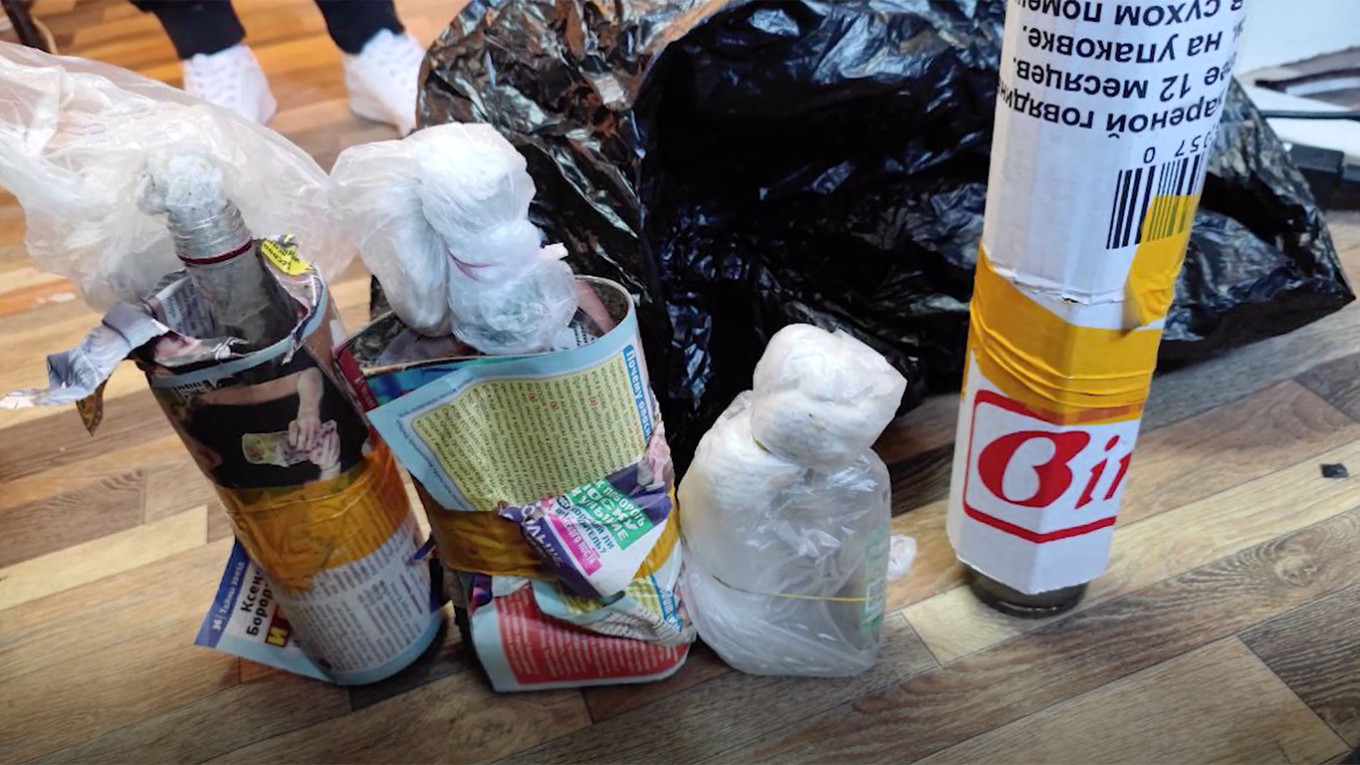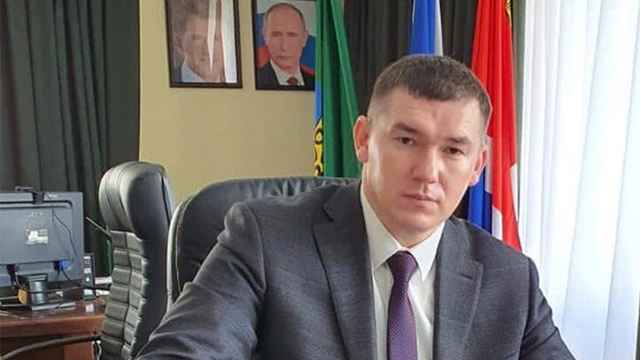Russia’s domestic intelligence agency has arrested a resident of the country’s Far East on suspicion of spying for Ukraine, the state-run TASS news agency reported Wednesday.
“Acting on the instructions of the Ukrainian military intelligence, the Primorye region resident collected and transmitted information about the region’s law enforcement agencies and military infrastructure,” the Federal Security Service (FSB) said.
The unnamed suspect faces up to 20 years in prison on charges of high treason.
TASS, citing the FSB, did not indicate whether he confessed to the charges. But the agency said the suspect “was fully aware that the recipient [of the intelligence] could use it against the security of the Russian Federation.”
Video shared by state media showed uniformed agents raiding a private property, apprehending its resident and displaying bottles wrapped in plastic resembling Molotov cocktails.
It was not possible to independently verify the FSB’s claims.
The FSB has announced several arrests of suspected Ukrainian or pro-Ukrainian saboteurs and spies in recent weeks amid a marked increase in attacks on Russian soil.
Russian law enforcement authorities have stepped up random car inspections and announced a series of restrictions on drone flying after the incidents that exposed gaps in Russia’s domestic security.
U.S. intelligence suggests that Kyiv has cultivated sabotage cells inside Russia, CNN reported this week.
Independent Russian media says the number of acts of sabotage inside the country has more than doubled so far in 2023.
This spring, the head of the FSB accused Kyiv and the West of recruiting young Russians to stage armed attacks in their home country.
Kyiv itself has not acknowledged any role in the attacks.
A Message from The Moscow Times:
Dear readers,
We are facing unprecedented challenges. Russia's Prosecutor General's Office has designated The Moscow Times as an "undesirable" organization, criminalizing our work and putting our staff at risk of prosecution. This follows our earlier unjust labeling as a "foreign agent."
These actions are direct attempts to silence independent journalism in Russia. The authorities claim our work "discredits the decisions of the Russian leadership." We see things differently: we strive to provide accurate, unbiased reporting on Russia.
We, the journalists of The Moscow Times, refuse to be silenced. But to continue our work, we need your help.
Your support, no matter how small, makes a world of difference. If you can, please support us monthly starting from just $2. It's quick to set up, and every contribution makes a significant impact.
By supporting The Moscow Times, you're defending open, independent journalism in the face of repression. Thank you for standing with us.
Remind me later.






